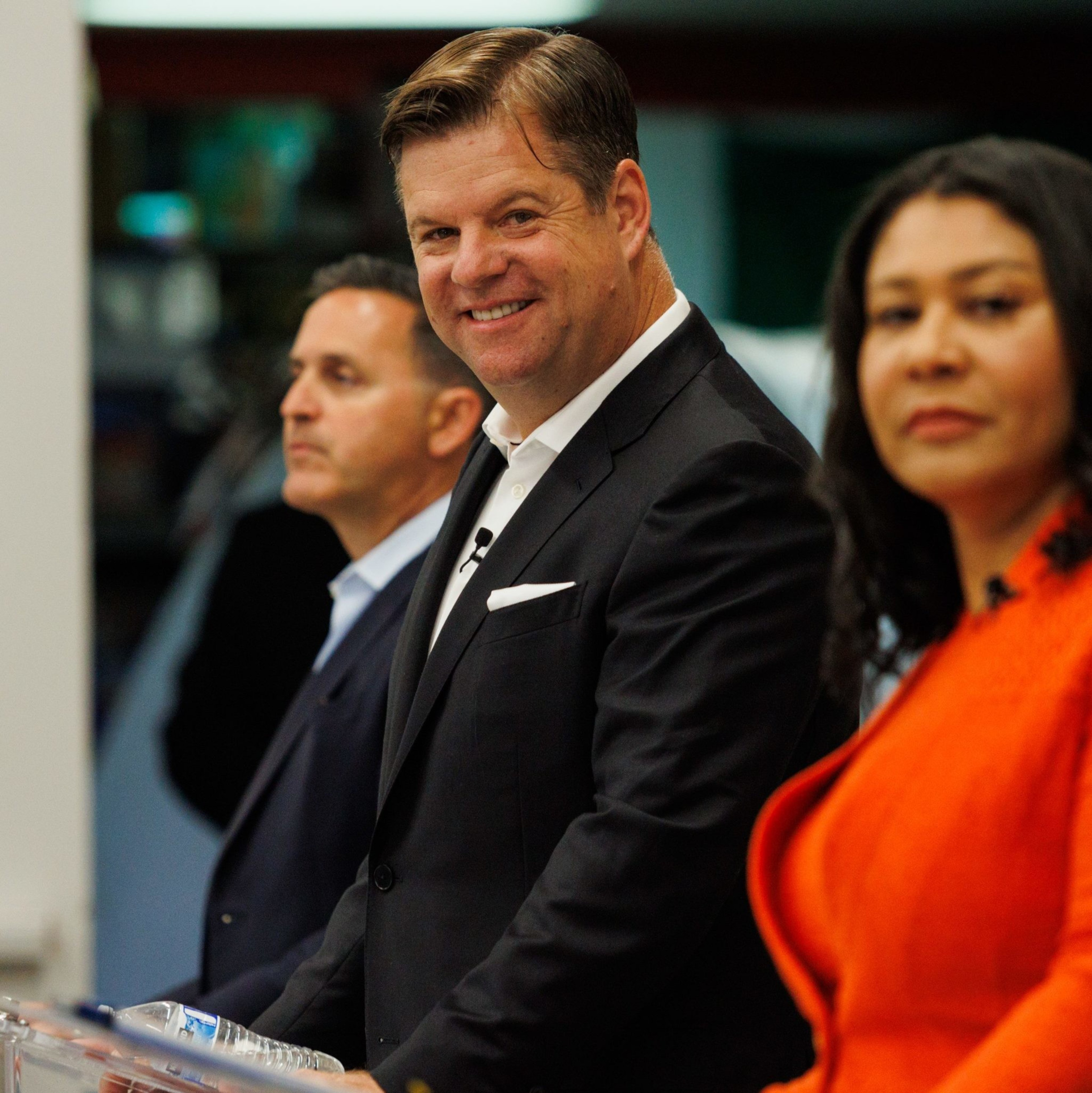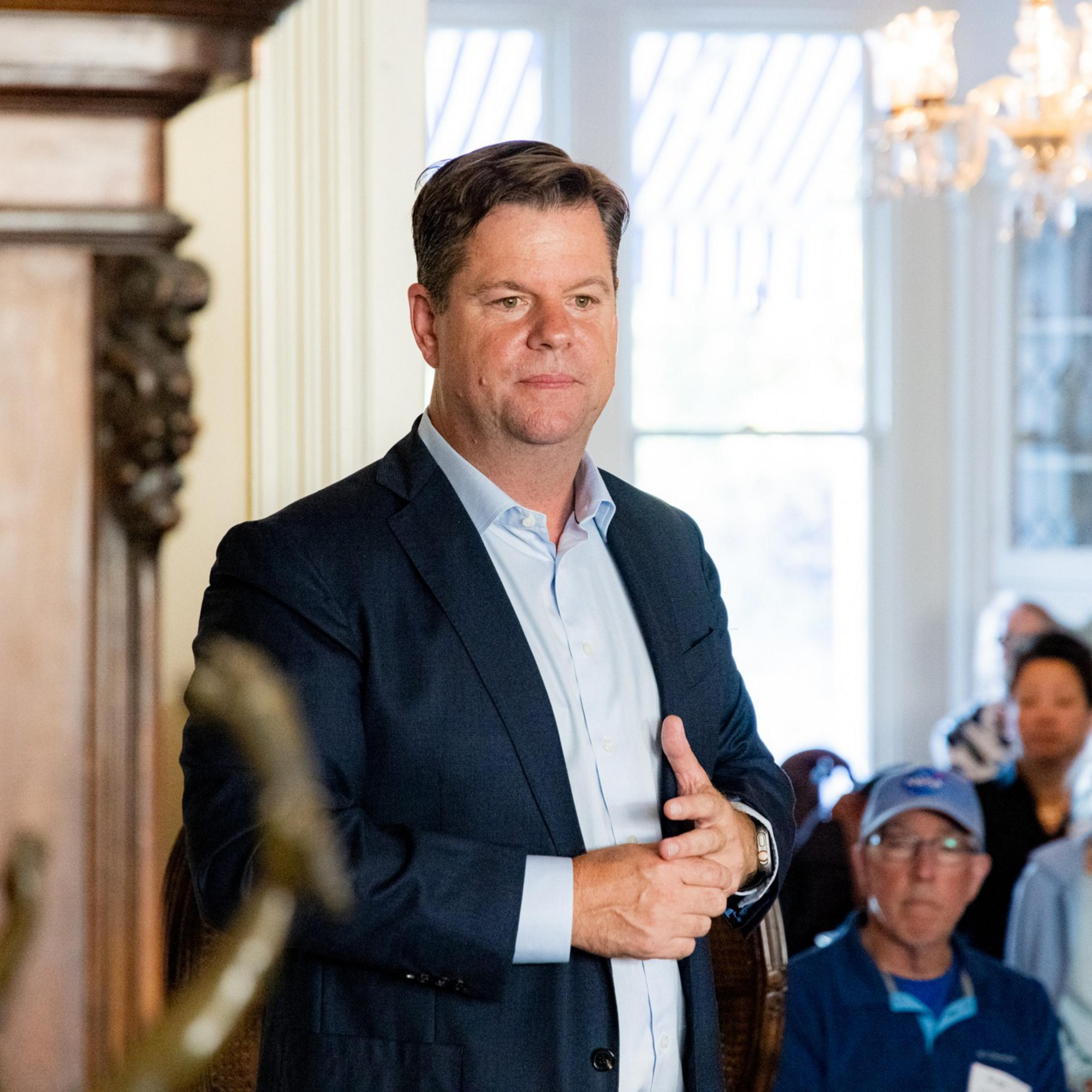San Francisco mayoral candidate Mark Farrell is, once again, facing questions about his campaign finance practices.
Critics this week accused him of dodging contribution limits by using a ballot measure committee to push resources toward his mayoral candidate campaign, which can accept only up to $500 from individuals.
A campaign disclosure form filed Monday by Farrell’s ballot measure committee, Mayor Mark Farrell for the Cut the Dysfunctional Bureaucracy Initiative, reported nearly $50,000 spent on interns over two weeks in July. That committee supports the moderate political group TogetherSF Action’s charter reform effort that promises to cut back on the number of city commissions.
The form shows the ballot measure committee reimbursed Farrell’s mayoral campaign for the work.
After The Standard inquired about the expense, a spokesperson for Farrell’s campaign said it made a mistake in the filing. The spokesperson said the actual cost of the interns was $23,848 — about half the reported sum. The campaign said the money was used to pay “dozens” of canvassers who work for the Farrell campaign but spend part of their time helping advocate for the ballot measure.
An amended document was filed Wednesday night by the ballot measure committee.
Two of Farrell’s opponents in the November race, Mayor London Breed and nonprofit founder Daniel Lurie, likened the payments to “money laundering.”
“He’s brazenly laundering money through a ballot measure to circumvent laws limiting contributions to his campaign for mayor,” Tyler Law, a Lurie campaign consultant, said in a statement.

Farrell’s campaign dismissed the characterization, saying that “every expense is legitimate, vetted and approved by counsel.”
“Our opponents are slinging mud because they are losing momentum and are trying to distract voters from their failed leadership and inability to deliver change on the top issues facing San Francisco,” Farrell’s campaign said in a statement. The campaign also provided The Standard with a memo drafted by attorneys defending its practices.
The ballot measure committee has received nearly $1 million in contributions, records show. Farrell’s candidate committee has shown a knack for fundraising, quickly raising hundreds of thousands of dollars after he launched his bid for mayor. The latest fundraising figures for the campaign will be available at the end of the month.
It isn’t the first time Farrell, a former supervisor and interim mayor, has been accused of testing the limits of campaign ethics rules.
Earlier this year, a text exchange suggested that Jay Cheng, executive director of the powerful moderate group Neighbors for a Better San Francisco, attempted to facilitate the hiring of a Farrell campaign staffer shortly after he launched his campaign. The exchange raised questions about how the offer squares with laws that bar cooperation between political action committees and candidate campaigns.
Farrell also faced scrutiny over campaign funds he used from a Democratic Party race to wine and dine unnamed constituents. An investigation by The Standard this month showed he spent thousands of dollars at the gatherings between 2016 and 2018. Farrell declined to disclose whom he met with during the meetings.
In 2016, Farrell was fined a record $25,000 after his 2010 supervisor campaign was found to have illegally (opens in new tab) coordinated with a committee set up by real estate magnate Thomas Coates and socialite Dede Wilsey. In June, Coates and his wife donated a whopping half a million dollars to Farrell’s ballot measure committee, according to campaign finance records.
Sean McMorris, an expert in campaign finance laws, said that considering Farrell’s history, the arrangement between his campaign committee and the ballot measure committee merited scrutiny.
“I have a lot of questions,” McMorris said. “It’s appropriate for the press and the public to wonder why they operated in this way.”

